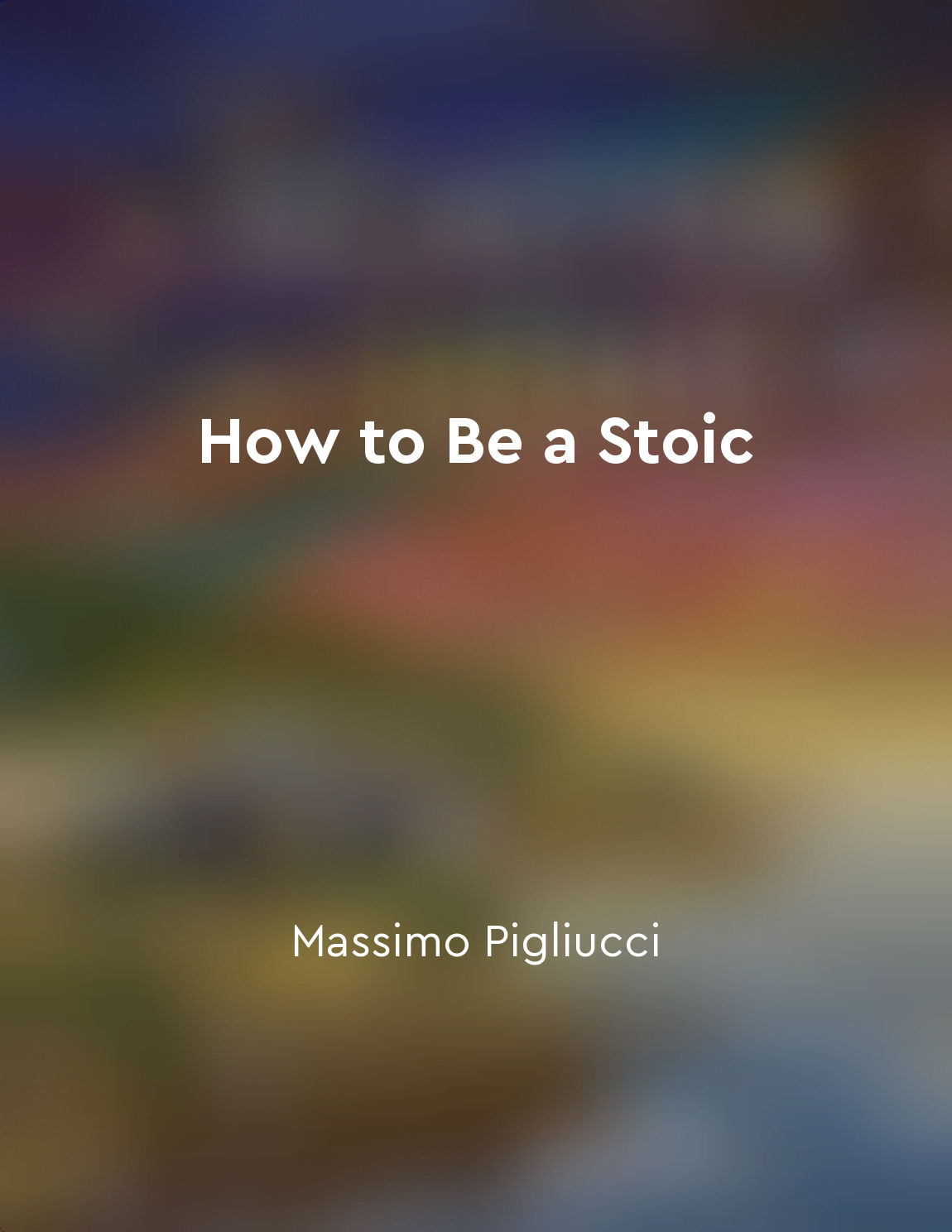Rationality tempers emotional responses in Stoic ethics from "summary" of Stoic Romanticism and the Ethics of Emotion by Jacob Risinger
In Stoic ethics, rationality plays a crucial role in moderating and guiding emotional responses. The Stoics believed that emotions are inherently tied to reason, and that it is through the exercise of reason that one can control and shape their emotional reactions to external events. By cultivating a rational mindset, individuals can learn to respond to challenging situations with poise and equanimity, rather than being swept away by the tide of their emotions. This emphasis on rationality as a means of tempering emotional responses is rooted in the Stoic belief that true virtue lies in living in accordance with nature. For the Stoics, living in accordance with nature meant living in harmony with the rational principles that govern the universe. By aligning one's thoughts and actions with these universal principles, individuals could achieve a state of inner tranquility and moral excellence. Central to the Stoic approach to ethics is the idea that emotions are judgments or evaluations of external events, rather than simply spontaneous reactions. This means that emotions are not inherently good or bad, but rather depend on how they are used and interpreted by the individual. By subjecting their emotional responses to rational scrutiny, individuals can determine whether their emotions are in line with reason and virtue, or whether they are leading them astray. In this way, rationality acts as a kind of filter through which emotions are processed and evaluated. Instead of allowing emotions to dictate their actions, individuals can use reason to assess the value and appropriateness of their emotional responses. This process of rational evaluation enables individuals to respond to challenging situations with wisdom and insight, rather than being driven by impulsive or irrational impulses.- The Stoic emphasis on the role of rationality in tempering emotional responses serves as a powerful tool for cultivating moral excellence and inner peace. By harnessing the power of reason to guide their emotions, individuals can navigate the complexities of life with grace and wisdom, staying true to their principles and values even in the face of adversity.
Similar Posts
Through cultivating virtues, we can attain wisdom and fulfillment
The Stoics believed that by cultivating virtues, we are able to attain wisdom and find true fulfillment in life. This idea is c...

The Stoic life is one of inner freedom and peace of mind
The Stoics believed that true happiness and freedom come from within, rather than from external circumstances. They taught that...

Adversity is seen as an opportunity for growth in Stoicism
In Stoicism, adversity is viewed as a chance for personal development and growth. Rather than being seen as something to be avo...
Negative emotions can be harmful
Negative emotions are often viewed as natural and unavoidable aspects of human experience. However, the Stoics argue that these...

The Stoic principle of living in accordance with reason
The Stoics believed that reason is the most essential aspect of being human. They argued that the ability to think rationally s...
The Stoic philosophy offers practical techniques for emotional regulation
The Stoic philosophy provides individuals with a set of practical tools that can be used to regulate their emotions. These tech...

Practice resilience in the face of adversity
The Stoics believed that adversity is an inevitable part of life, and that the key to dealing with it effectively is to cultiva...

Stoic philosophy offers a timeless wisdom that can guide individuals towards a more meaningful and fulfilling life
Stoic philosophy, an ancient school of thought founded in Athens by Zeno of Citium in the early 3rd century BC, offers a practi...
Stoicism provides tools for emotional selfmastery
Stoicism, as a philosophical system, offers a set of tools that can help individuals achieve emotional self-mastery. By underst...

